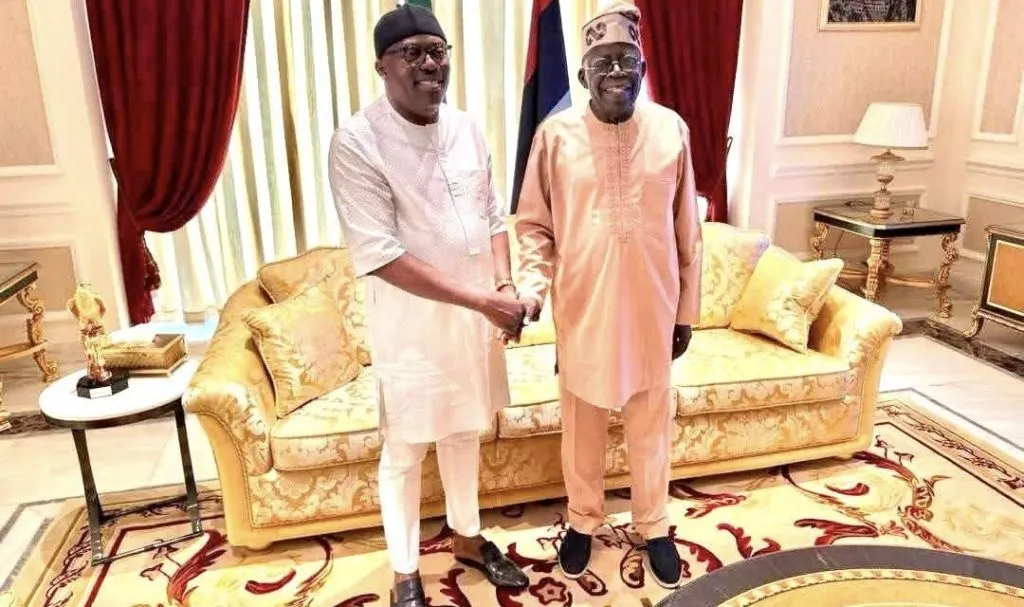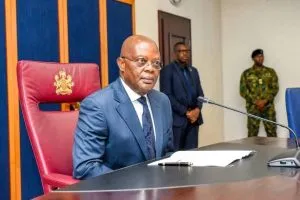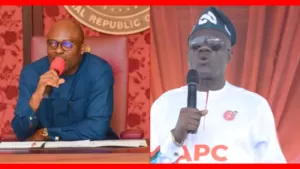President Tinubu Fails to Reinstate Suspended Rivers State Governor Fubara on Democracy Day

Nigeria’s Democracy Day, President Bola Ahmed Tinubu did not reinstate Siminalayi Fubara, the suspended Governor of Rivers State, despite mounting public appeals from prominent figures and widespread criticism of the suspension’s legality. The decision to maintain Fubara’s suspension, alongside that of his deputy, Prof. Ngozi Odu, and the Rivers State Assembly, has deepened political tensions in the oil-rich state and sparked debates about constitutional overreach and political motivations.
Background of the Suspension
The crisis in Rivers State began on March 18, 2025, when President Tinubu announced the suspension of Governor Fubara, his deputy, and the state assembly, citing Fubara’s alleged despotic behavior and failure to address the demolition of the state assembly building. Tinubu declared a state of emergency in Rivers State, a move that handed interim administrative control to a caretaker committee led by retired Major General Darlington Nnaemeka Orji. The suspension was widely linked to the ongoing political feud between Fubara and his predecessor, Nyesom Wike, now the Minister of the Federal Capital Territory, whose influence over Rivers State politics remains significant.
The demolished assembly building, a flashpoint in the crisis, was destroyed in December 2024 during a period of heightened political rivalry. The incident followed attempts by Wike-aligned lawmakers to impeach Fubara, escalating tensions that led to violent clashes and arson. Tinubu’s intervention, including the state of emergency, was presented as a measure to restore order, but critics argue it was a politically motivated move to weaken Fubara’s administration.
Appeals for Reinstatement Ignored
As Nigeria marked Democracy Day, expectations were high that President Tinubu would use the occasion to address the Rivers State crisis and reinstate Fubara. Prominent voices, including former President Goodluck Jonathan and PDP chieftain Bode George, publicly urged Tinubu to reverse the suspension. Jonathan, speaking at a Democracy Day event in Port Harcourt, emphasized the need for reconciliation and adherence to democratic principles, stating, “Rivers State is too crucial to Nigeria’s economy to be left in turmoil.” Similarly, Bode George, in a widely publicized letter, appealed for clemency, drawing parallels to Tinubu’s earlier pardon of Lagos State Governor Babajide Sanwo-Olu after a political controversy. George argued that reinstating Fubara would demonstrate Tinubu’s commitment to national unity and fairness.
Despite these appeals, Tinubu made no mention of Fubara or the Rivers State crisis in his Democracy Day address, which focused on economic reforms and national security. The omission drew sharp criticism from political analysts and civil society groups, who accused the president of prioritizing political alliances over constitutional governance.
Public and Legal Backlash
The suspension of Fubara has been met with widespread condemnation, with many questioning its legality. Bishop Godfrey Onah of the Nsukka Catholic Diocese described the move as “unconstitutional and dangerous,” arguing that no provision in Nigeria’s 1999 Constitution allows a president to suspend a sitting governor. “This is a precedent that undermines the federal structure of our democracy,” Onah warned during a sermon in Enugu. Similarly, popular musician and activist Folarin Falana, known as Falz, took to social media to criticize Tinubu, stating, “Suspending a governor without due process is a slap on democracy. Nigerians deserve better.”
Posts on X echoed this sentiment, with users accusing Tinubu of enabling Wike’s alleged vendetta against Fubara. One user wrote, “Tinubu’s silence on Fubara’s reinstatement shows who’s pulling the strings in Rivers. Democracy Day? More like Dictatorship Day.” Another post highlighted the economic implications, noting, “Rivers State contributes over 25% of Nigeria’s oil revenue. This political crisis is a national disaster.”
Legal experts have also weighed in, pointing out that the 1999 Constitution grants governors immunity from arbitrary removal, except through impeachment by a state assembly or a court ruling. The suspension, enacted via executive fiat, has been described as a potential violation of the separation of powers, raising questions about Tinubu’s commitment to the rule of law.
Fubara’s Response and Political Dynamics
Surprisingly, Governor Fubara himself has expressed a degree of acceptance of Tinubu’s intervention. In a statement issued shortly after his suspension, Fubara thanked the president for declaring a state of emergency, describing it as a “lesser evil” compared to impeachment by Wike-aligned lawmakers. “I remain committed to the peace and progress of Rivers State,” Fubara said, urging residents to remain calm and law-abiding. His remarks suggest a pragmatic approach to navigating the crisis, possibly to avoid further escalation with Wike’s camp.
However, Fubara’s acceptance has not quelled public discontent. Many Rivers residents view the state of emergency as a power grab that undermines the state’s autonomy. The caretaker committee, led by Major General Orji, has struggled to gain legitimacy, with reports of protests in Port Harcourt demanding Fubara’s reinstatement.
The political dynamics in Rivers State are further complicated by Wike’s influence. As Fubara’s predecessor and a key figure in Tinubu’s administration, Wike is widely believed to have orchestrated the events leading to the suspension. Sources within the PDP claim that Wike’s loyalists in the Rivers State Assembly initiated the impeachment plot to assert control over the state’s political machinery. Tinubu’s failure to reinstate Fubara has fueled speculation that he is aligning with Wike to secure political leverage in the South-South region ahead of the 2027 elections.
Broader Implications
The Rivers State crisis has far-reaching implications for Nigeria’s democracy and federal structure. The state’s role as a major oil-producing hub makes it a critical player in the nation’s economy, and prolonged instability could disrupt oil production and revenue. Moreover, the suspension sets a troubling precedent for executive overreach, raising concerns about the erosion of state autonomy.
Political analysts argue that Tinubu’s handling of the crisis reflects a broader pattern of prioritizing political expediency over democratic norms. The comparison to Sanwo-Olu’s pardon highlights perceived inconsistencies in Tinubu’s approach to governance. While Sanwo-Olu was quickly reinstated after a political misstep, Fubara’s fate remains uncertain, fueling accusations of selective justice.
Conclusion
President Tinubu’s decision to maintain the suspension of Governor Siminalayi Fubara on Democracy Day 2025 has intensified debates about Nigeria’s democratic integrity. Despite appeals from elder statesmen, religious leaders, and civil society, the president’s silence on the issue has deepened public distrust. As Rivers State grapples with a leadership vacuum and a state of emergency, the nation watches closely to see whether Tinubu will prioritize reconciliation or continue to navigate the crisis through political calculations. For now, Fubara’s reinstatement remains a distant prospect, leaving Rivers State and Nigeria at a critical crossroads.






